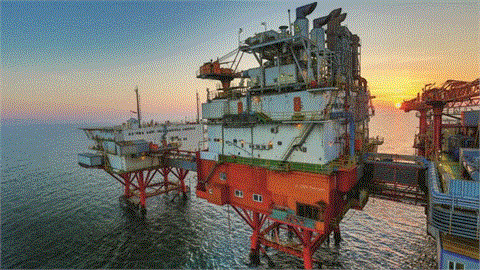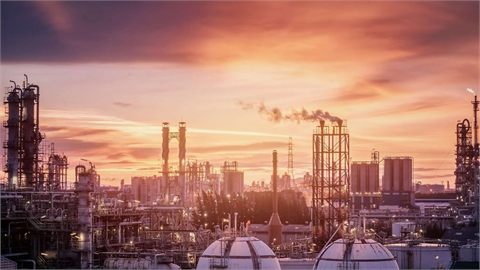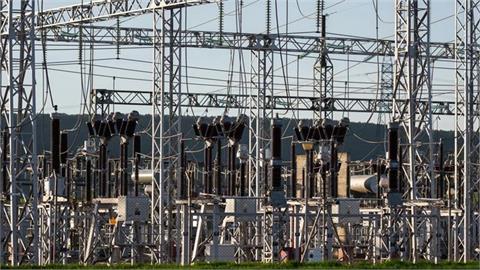The European Union plans to file formal antitrust charges against the bloc’s largest gas supplier, Russia’s OAO Gazprom, said people familiar with the matter, a move set to escalate the standoff between Europe and Moscow.
The charges jump-start a case against the state-controlled energy company, which the EU has long suspected of abusing its dominant position in some eastern and southern European countries’ markets. Over the past year, the EU avoided formally charging Gazprom in the 2½-year-old probe as diplomatic talks with Moscow to resolve the Ukraine crisis were under way. But those talks have dragged on.
The move comes after the EU imposed economic sanctions against Russia last year over the country’s role in the Ukraine conflict, and risks complicating international efforts to reach a peace accord.
Gazprom, meanwhile, faces the prospect of a multibillion-dollar fine at a time when Russia is already struggling with falling energy prices and EU moves to lure alternative gas suppliers.
With the new charges, the bloc’s competition commissioner, Margrethe Vestager, mounts another antitrust case against a major company in a big country just one week after the European Commission filed formal charges against U.S.-based Google Inc. Google has denied any anticompetitive behavior. When she took office in November, the antitrust chief pledged not to be swayed by political considerations.
Gazprom wasn’t available for comment. But Russian and Gazprom officials have denounced the EU’s probe as politically motivated and aimed at forcing the company to reduce its prices.
After the commission disclosed its formal investigation against Gazprom in 2012, Russian President Vladimir Putin hit back with a decree preventing the company from disclosing information to foreign regulators without government permission. But EU investigators had already gathered material in a string of surprise raids on Gazprom subsidiaries and large European national energy suppliers a year earlier.
When it launched the probe, the commission said it suspected Gazprom of unfair behavior in three areas: preventing some countries from re-exporting gas they have bought from the company; tying some aspects of its contract with customers—such as the price it charges for gas—to cooperating in other business areas including the building of new pipelines; and tying the price it charges for gas to international oil prices.
Lithuania has complained that it faced higher prices than its neighbors due to its decision to force Gazprom to sell its stake in the country’s pipeline network. It lodged a formal complaint with the commission on Gazprom’s pricing in 2011. Other countries, including Poland, have also voiced concerns over the company’s practices. Gazprom has denied any wrongdoing, accusing the commission of seeking to interfere in commercial contracts.
Countries that cooperated with Gazprom on a now-abandoned pipeline project known as South Stream, meanwhile, were given more favorable prices, people familiar with the investigation have said.
Europe is Gazprom’s most lucrative market, and the company accounts for around one-third of EU gas imports, making it the largest outside supplier. Some countries in the Baltics and southeastern Europe rely entirely on shipments from the Russian company.
Hours before the news of the charges emerged Monday, Gazprom said its chief executive would on Tuesday meet the Greek prime minister, whom Russia has been courting as a potential ally in the EU. Greek and Russian officials have been discussing Greece’s participation in a controversial pipeline project that would undermine the bloc’s attempts to reduce its energy dependence on Moscow.
Before talks between the EU and Moscow broke down last year, shortly after Russia’s annexation of Ukraine’s Crimean peninsula, Gazprom and EU competition regulators had come close to settling the first two elements of the case, said people familiar with the investigation. Far less progress had been made on the oil-price link—partly because other gas companies have pursued a similar pricing policy. Experts have questioned whether the commission would be able to build a case against Gazprom on that front.
The people familiar with the commission’s case didn’t say on what parts of the investigation charges would be filed on Wednesday. Charges could be limited to just parts of the initial probe and narrowed down from the eight countries the commission was originally examining, the person said. That could reduce the potential fines Gazprom would face.
By formally charging Gazprom, the commission doesn’t rule out the possibility of a settlement—a strategy that the company had publicly embraced before talks stopped and that would allow it to avoid costly fines. One of the people familiar with the case said on Monday that the company had signaled to the commission its willingness to settle the case as recently as last week, but that no formal talks had taken place since last year.
"There is a very strong argument [for Gazprom] to settle,” said Alan Riley, a professor at City Law School in London who specializes in energy issues, adding that a legal decision against the company and fines would be "pretty catastrophic from a business point of view.”
But Mr. Riley cautioned that political considerations could prevent Gazprom, which is controlled by the Russian government, from agreeing to an amicable solution. "Whatever way it is put, it would be seen as some kind of climb-down” by Moscow, he said.
The commission has been working to reduce the EU’s dependence on Gazprom and Russia. Late last year, Moscow said that an EU law that forces pipeline owners to open up their infrastructure to rival suppliers had forced it to drop the South Stream Project, which would have bypassed Ukraine.
Instead, Russia is now trying to build an alternative pipeline via Turkey, known as Turkish Stream, and Moscow and Gazprom have been grooming some EU governments for support. Gazprom’s chief executive, Alexei Miller, is set to be in Athens on Tuesday to meet Prime Minister Tsipras, who is struggling with the rest of Europe over the terms of continued financial aid.
Mr. Tsipras’s leftist government has asked Russia for a discount on its gas and discussed the possibility of continuing Turkish Stream into Greece, which would give it a crucial link into EU territory.
European customers have in recent years squeezed discounts from Gazprom amid competition from liquefied natural gas deliveries and cheap American coal shipments to power producers. The recent drop in oil prices has also been a boon for those whose contracts are still oil-linked.
Gazprom has said that regulatory pressure in Europe is accelerating its attempts to sell its gas in Asia. Last year, Russia signed a long-delayed gas contract with China, although analysts from Sberbank CIB say the projected pipeline looks expensive, and that the company would be better off using another route for deliveries.
(Wall Street Journal)



